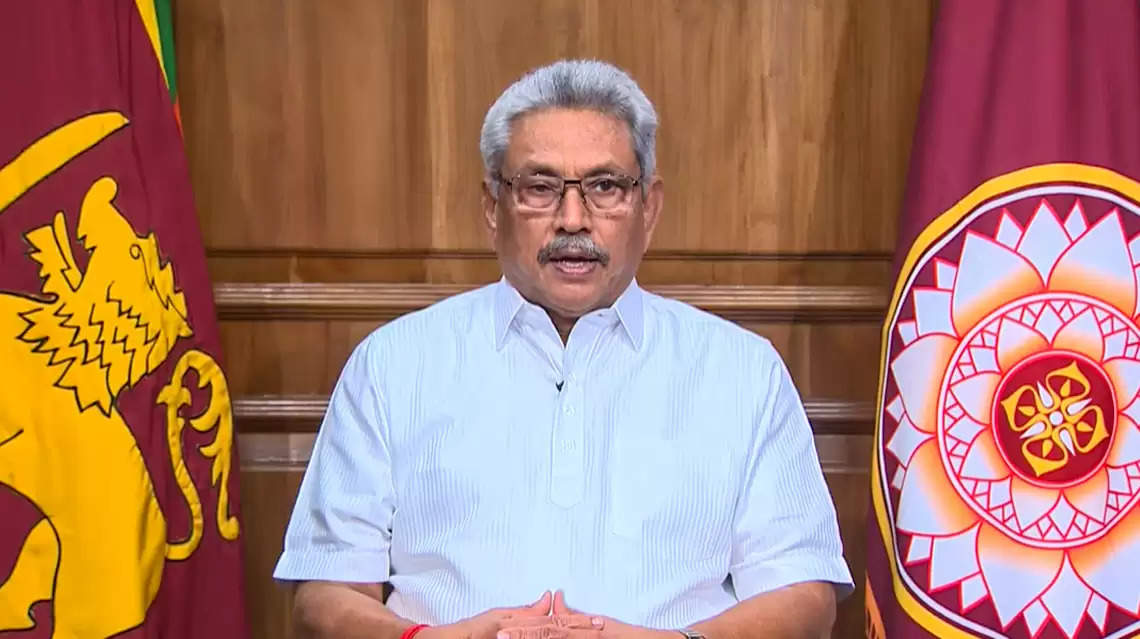Sri Lankan President Gotabaya Rajapaksa admits to making blunders that contributed to the country's economic turmoil.

Sri Lanka's president admitted Monday that he made mistakes that contributed to the country's worst economic crisis in decades and promised to make amends.
President Gotabaya Rajapaksa made the statement while speaking to the 17 new Cabinet members he nominated on Monday, as he and his powerful family strive to settle a political crisis brought on by the country's catastrophic economic situation.
Sri Lanka is on the verge of declaring bankruptcy, with over USD 7 billion of its USD 25 billion in foreign debt due to be repaid this year. Due to a serious dearth of foreign exchange, the country is unable to purchase imported commodities.
People have faced months of shortages of necessities such as food, cooking gas, gasoline, and medication, queuing for hours to purchase the extremely limited supplies available.
"We've faced enormous hurdles over the previous two and a half years. The COVID-19 epidemic and the financial load and certain errors on our side" added Rajapaksa.
"They must be corrected." We must fix them to go forward. We need to recover the people's faith."
He believes the government should have called the International Monetary Fund earlier for assistance in dealing with the looming financial problem, and that chemical fertilizer should not have been outlawed in an attempt to make Sri Lankan agriculture totally organic. Critics argue that the prohibition on imported fertilizer was imposed to protect the country's dwindling foreign exchange reserves at the expense of farmers.
The administration is also being chastised for taking out massive debts for infrastructure projects that have failed to generate revenue.
"People are currently under a great deal of stress as a result of the economic downturn. "I profoundly lament this situation," Rajapaksa stated, adding that the agony, discomfort, and outrage expressed by those compelled to queue for lengthy periods of time in order to get basic necessities at exorbitant costs is warranted.
The nominations come after weeks of protests over gasoline and food shortages, as well as calls for Rajapaksa, his politically strong family, and his administration to go.
Rajapaksa and his elder brother, Prime Minister Mahinda Rajapaksa, have sparked widespread public outrage. They are the head of a powerful clan that has ruled for the previous two decades.
On Monday, tens of thousands of demonstrators held the president's office entrance for the tenth day.
The president and prime minister remain in office, but several other members lost Cabinet posts in what was regarded as a bid to appease the demonstrators while maintaining the family's control.
Many senior politicians and those accused of corruption were left out of the new Cabinet, despite appeals for a younger administration. The finance and foreign affairs ministers, however, were kept to help with the economic recovery.
On April 3, the majority of the Cabinet resigned as nationwide demonstrations erupted, with protestors storming and vandalizing the houses of certain Cabinet ministers.
President Rajapaksa's offer to create a unity government with him and his brother continuing in power was rejected by opposition parties. Meanwhile, opposition parties have been unable to secure a legislative majority.
The administration said last week that repayment of foreign loans will be suspended awaiting negotiations with the International Monetary Fund. On Sunday, Finance Minister Ali Sabry and other officials traveled for meetings with the IMF. This week, the IMF and the World Bank are convening in Washington for their annual meetings.
Sri Lanka has also sought emergency financing from China and India to purchase food and gasoline.
.png)